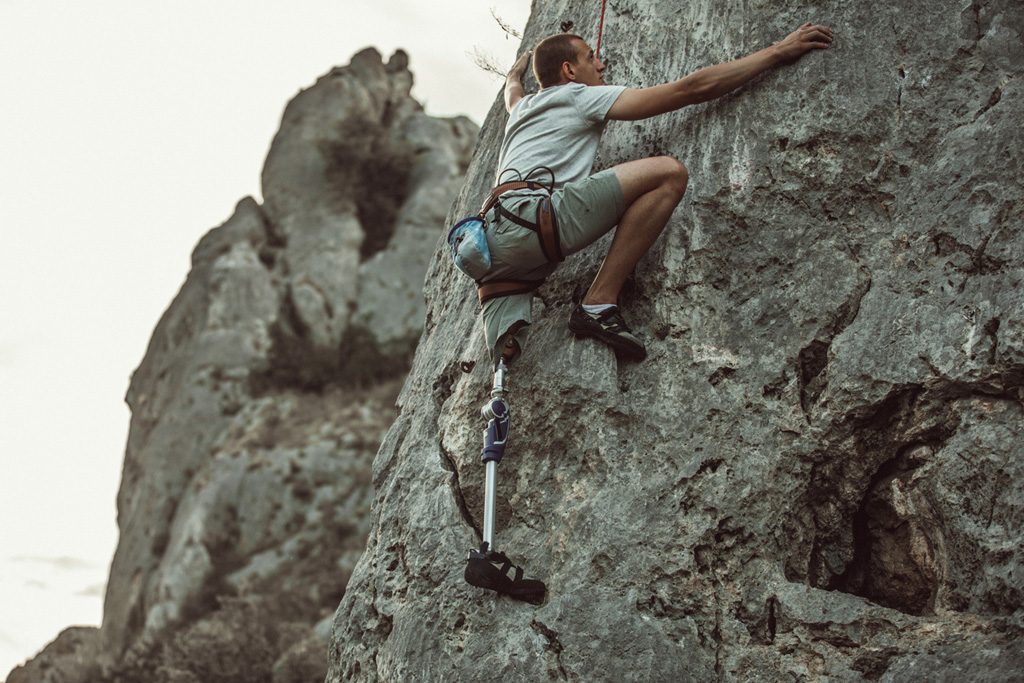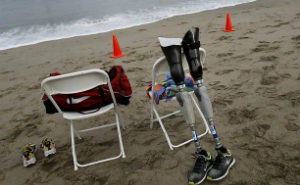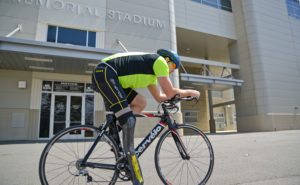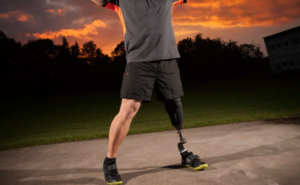Losing a limb will change your life in a hundred ways, large and small. How much your life will change depends on a number of factors, including which limb was amputated and to what degree, your ability to wear a prosthesis, your overall physical and mental health, and your support system.
But whether you lost a leg or you’re a quadruple amputee, we have some tips that can help you recover as fully as possible and get you back to your previous lifestyle.
Keep Up with Your Post-Amputation Rehabilitation
One of the most important things you can do to improve your mobility, your self-esteem, and your everyday comfort after an amputation is to keep up with your rehabilitation and your physical therapy exercises. Increasing your mobility and flexibility can help you stay more independent and promote a better self-image.
The goal of rehabilitation post-amputation is to help you return to your highest possible level of independence and functionality. It is also meant to improve your overall physical, emotional, and social quality of life. To reach these goals, your rehabilitation program may include:
- Wound healing and stump care treatments
- Motor skills exercises
- Strength, endurance, and muscle control exercises
- Fitting and use of prostheses
- Pain management program (for both post-surgery pain and phantom limb pain)
- Emotional support for the grieving period and while adjusting to a new body image
- Use of crutches, canes, walkers, or other assistive devices
- Nutritional counseling
- Vocational counseling
- Adaptation of your home environment for safety, accessibility, and function
- Patient and family education
You should follow the advice and treatment plans given to you by your surgeon, physical therapist, and prosthetist to ensure that you are giving your body the best chance possible for recovery and mobility.
Grow Your Support System
A crucial part of regaining your lifestyle after an amputation is building a solid support system around you. Recovery is a journey and close friends, family, doctors, therapists, and other medical and mental health professionals work together like a net that’s ready to catch you when you fall.
Schedule Togetherness
Your friends and family are the ones who can help keep you active and social, even when you’re not feeling your best. Sometimes, post-operative depression can keep you from going out and enjoying your life. If reclusiveness becomes a habit, you can start to lose relationships that are an enriching and integral part of your happiness and quality of life.
Try setting aside certain times every week to contact friends and family. Have a scheduled Tuesday dinner with your parents or a bi-monthly book club with friends. Set aside an hour each day and use that time to reach out–via text, email, phone, or face-to-face—to people you want to keep in touch with. Having a set schedule keeps you in a routine and ensures that even on your dark days, you’ll have something to look forward to.
Don’t Be Afraid to Reach Out First
After an illness or an accident, it’s normal for people to feel like they’re infringing or in the way and they may want to “give you space.” Nip that in the bud by reaching out yourself. You’ll be surprised how many people let you know how grateful they are that you did.
Find People In The Same Boat
It can also be incredibly helpful to have a support system of people who are going through the same thing as you. Other amputees understand your grieving, your anger, your physical struggles, and even the overwhelming joy of small victories.
They can offer advice from someone who’s been there, commiserate with your feelings, and appreciate the inside jokes and dark humor that only other people who’ve experienced similar trauma can really understand.
And most importantly, a support group of your peers helps remind you that you are not alone. For every internet horror story, there is a real amputee finding success and living a fulfilling life in your area. Representations of successful recovery and assimilation are key in the struggle to reclaim your identity and your life.
The Amputee Coalition of America has excellent resources for finding amputee support groups in your community. If you live in a small town or a remote area, there are also many online groups, chatrooms, forums, and resources at your disposal.
Adjust and Modify
Your level of difficulty in learning to navigate your new lifestyle will depend on a lot of things—your level of amputation, your access to prosthetics, your general level of health, etc. But the largest factor that will determine to what level you will be able to resume your life is your attitude.
After an amputation, there are some things that will never be exactly the same. But there are always adjustments and modifications you can make to keep enjoying your life.
If you’re a runner who’s lost a leg, talk to your prosthetist about your prosthetic options. You may want to consider a running-specific prosthetic with extra support in the knee and ankle joint and carbon spring feet. If you lose your dominant arm, there are exercises and therapies you can use to help retrain your non-dominant arm and your brain to work equally as well. If you can’t stretch to reach a high cabinet, ask a friend or family member to help you reorganize your home so that you’re as comfortable as possible.
Amputee Support Groups Near Me
If you are looking for an amputee support group in Little Rock, we at Horton’s Orthotics and Prosthetics can help you find the perfect group for you. We partner with A.B.L.E. (Amputees Beyond Life’s Expectations), a support group for amputees. A.B.L.E. offers support group meetings and events designed to answer all of your questions about limb loss.
All ages, backgrounds, level of amputation, and experience levels are welcome—new amputees even more so. Let us help you find the strength and resources you need to reclaim your life! Contact us today if you have any questions about A.B.L.E. or other amputee resources.



